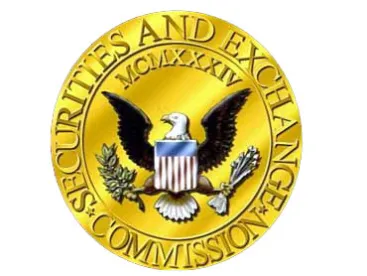Three and a half years after the passage of the JOBS Act, the SEC on October 30, 2015 adopted final rules for Title III of that Act, more popularly known as equity crowdfunding and dubbed by the SEC as “Regulation Crowdfunding” (we refer to it as “Reg. CRWD”). What should have been an exciting day for entrepreneurs and funding platforms will more likely be seen as a non-event in the annals of corporate finance history. The promise of equity crowdfunding was a world in which all investors, whether accredited or non-accredited, could participate in the securities offerings of promising start-ups (the “S” in Jumpstart Our Business Start-Ups of the JOBS Act’s title). The reality is that Reg. CRWD is a burdensome, costly regulatory regime that is unlikely to be utilized by private companies who have other financing options that do not impose on them the restrictions, requirements and liabilities that Reg. CRWD does.
Title III and Reg. CRWD create a new exemption from registration under the Securities Act that issuers of unregistered securities may use to offer and sell such securities to investors. Unlike most of the exemptions available under Regulation D, Reg. CRWD offerings would be open to anyone, not just high net worth/high income “accredited investors”. However, there are limitations: for example, issuers can raise up to an aggregate of only $1 million in any 12-month period (as opposed to, e.g. Rule 506’s unlimited offering amount), and individual investors are limited to investing in any 12-month period up to (x) the greater of $2,000 or 5% of the investor’s net worth or annual income (for investors with net worth or annual income under $100,000), or (y) 10% of the lower of their annual income or net worth (for all other investors), subject to a total investment cap of $100,000 (none of the Regulation D or Regulation A offering rules cap investor amounts). And although part of the appeal of crowdfunding is to reach as large a “crowd” as possible, issuers and the “intermediaries” (i.e., funding portals or broker-dealers on whose platforms all Reg. CRWD offerings must be conducted) are strictly limited in the kinds of general advertising they can use, and are permitted to post only very limited notices that direct investors to the intermediary’s platform and provide minimal top-level information about the issuer and offering.
What we think will make Reg. CRWD offerings particularly burdensome and expensive, however, will be the compliance requirements for issuers and intermediaries. The SEC has created new “Form C”, which issuers utilizing Reg. CRWD will be required to file for all filings related to a Reg. CRWD, including an initial offering statement (and updates thereto) and ongoing annual reports. The initial Form C will need to be filed at least 21 days before any offering commences, and the disclosure requirements for a Reg. CRWD offering are extensive. They include detailed information about the issuer and its business, capital structure, and material debt; the uses of offering proceeds; the offering itself, including how the securities were valued and target offering amounts and deadlines; securities transfer restrictions; intermediary compensation and ownership interest in the issuer; a narrative discussion of the issuer’s financial condition; and other information related to the issuer. Issuers will also be required to provide investors with financial statements, subject to different levels of certification, review or audit depending on the size of the offering: for example, audited financials are required for offerings over $500,000 where the issuer has already used Reg. CRWD for a previous offering (or has audited financials available).
Amendments to the Form C will need to be filed any time there is a material change related to the offering or the issuer, and progress reports on the status of the offering need to be filed periodically. And, unlike issuers who rely on Regulation D for private offerings, Reg. CRWD issuers will be subject to ongoing annual public reporting requirements after an offering is completed, disclosing all of the non-offering related information the issuer was required to disclose as part of the offering, and material updates of the same. These annual reporting obligations are not indefinite, but they will last for most issuers at least one year.
The burdens of Reg. CRWD do not fall only on the issuers. Intermediaries, investors and even directors and officers of intermediaries and issuers will also have compliance requirements and limitations to contend with, as well as potential liability in connection with the offering. For example, intermediaries will need to register with the SEC and become members of FINRA (if they are not already registered broker-dealers), and will be subject to recordkeeping requirements and issuer compensation limitations. Investors will be restricted from reselling the shares they purchase in a Reg. CRWD offering for a year, subject to certain limited exceptions. Perhaps more significantly, issuers and, most likely, intermediaries will have liability to investors for material misstatements and omissions, as will individual officers and directors of those entities. Contrast that with Regulation D offerings in which an investor must prove actual intent to defraud, or reckless indifference to the truth of the representations made, in order to bring a federal claim, and where individual officers and directors are not subject to liability. This new liability is a real risk that issuers and intermediaries and their principals may not want to expose themselves to for the limited offering amounts available under Reg. CRWD.
Proponents of equity crowdfunding should be disappointed by the new Regulation, as the cost of compliance and ongoing reporting, the restrictions on intermediary communications and compensation, and the potential liability of those involved in Reg. CRWD offerings, coupled with the relatively low maximum offerings amounts and investment limitations, will make Reg. CRWD young companies’ least appealing option for an equity financing (registered or unregistered), and we expect it to be used infrequently. For an entrepreneur looking to raise funds from the “crowd”, most will be better off raising funds from accredited investors relying on Rule 506 – under which there are no offering limits, no specific disclosure or reporting requirements and no individual liability for officers and directors. Regulation Crowdfunding will be effective May 16, 2016.




 />i
/>i


